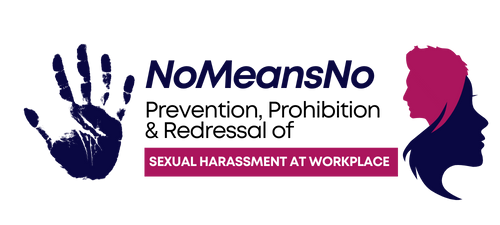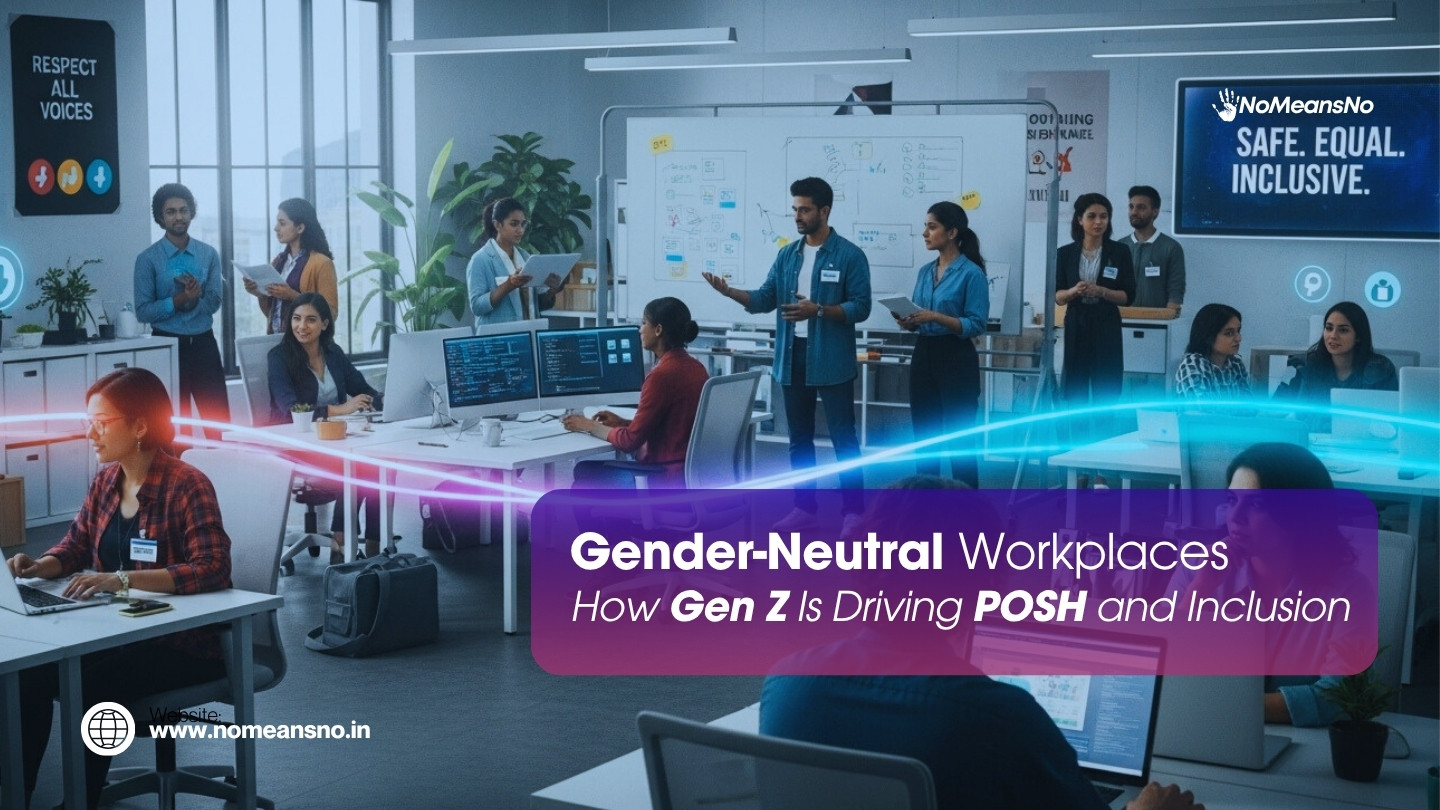Gender Neutral Workplace and Gen Z Is Driving the Change
Aisha was not her usual self when she started her first job at a tech startup, but she became more positive as time went by. The main reason for this was the fact that the company had a declared stand on diversity and this was what she liked the most. However, as time passed the reality was quite different from the promise and Aisha found that the workplace was not at all inclusive.
A colleague belittled women by saying that they were not “technical enough” in a very casual manner, somebody kept calling a non-binary co-worker by the wrong pronoun, and the HR team dismissed it by laughing. “It’s just friendly banter”, they told Aisha. Nevertheless, it was not only not joking for Aisha, but it was also very serious for her generation.
The members of Gen Z are usually credited with being brave, outspoken, and showing complete fairness, and they are the ones who are introducing the latest culture of their workplaces. They were also there at the time when society was still having a hard time acknowledging the existence of mental health, and they were the ones pushing for the whole organization to become a great big family.
Hence, with this being the case, a workplace where there is yet another family member, perhaps even more than that is what the generation coming after the millennials certainly will demand.
The Gen Z Lens: Equality Is Not a Buzzword
This new generation is completely different from the ones that have been before. They are unique in the sense that when it comes to gender equality, they have jumped over the idea of it being a “women’s issue” but rather they assume it as a human matter. Many of them do not classify themselves into the conventional types of gender, and this is the reason why they require the work environment to be sensitive in this respect, too.
According to a Deloitte survey, over 70% of Gen Z employees consider diversity, equity, and inclusion a key factor in choosing where to work.
But inclusion isn’t just about diverse hiring; it’s about safe belonging, knowing that no matter your gender, orientation, or identity, your dignity is protected.
That’s where the Prevention of Sexual Harassment (POSH) Act, 2013 comes in.
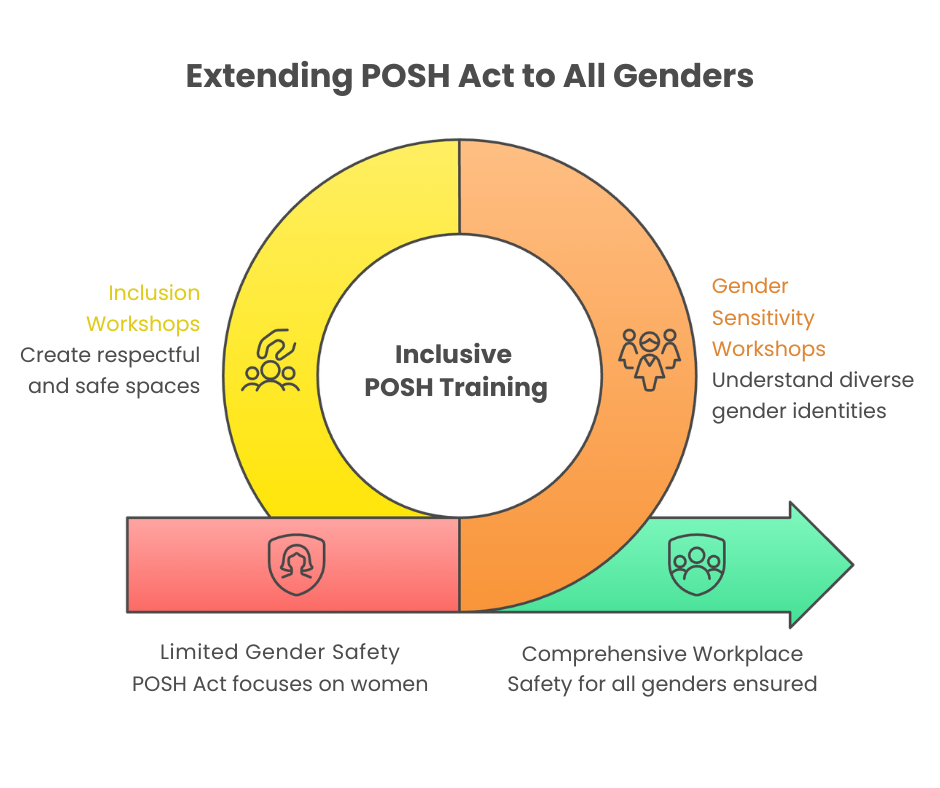
POSH and the Modern Workforce
The POSH Act was enacted to safeguard women, from sexual harassment at the workplace. But as our understanding of gender evolves, so must our interpretation of “safety.” While the law currently centers on women, organizations can, and should, extend its spirit to all genders.
Because sexual harassment, discrimination, and microaggressions aren’t gender-exclusive. A Gen Z intern misgendered during a team call, a male employee mocked for reporting inappropriate behavior, or a non-binary team member uncomfortable during “boys’ club” banter, all of these erode trust and safety.
Forward-thinking organizations are recognizing the need of Gender Neutral Workplace. Many now integrate POSH training with broader gender sensitivity and inclusion workshops, ensuring that employees understand not only what not to do but how to actively create respectful spaces.
Beyond Compliance: Building Culture
Implementing POSH policies is a legal mandate, but creating safety is a cultural commitment. Companies that merely “check the box” by conducting annual training miss the point. Gen Z employees notice the difference between compliance and care.
Here’s how the modern workplaces hit it the nail:
- Inclusive Language Policies: Users are made to feel welcomed and accepted where gender-neutral terms are used in emails, in policies, and even in job descriptions.
- Safe Reporting Mechanisms: The Internal Committee (IC) under POSH is always willing to listen, always maintains confidentiality, and always acts with compassion towards the harassed.
- Diversity in Leadership: The presence of minorities in the top tier of an organization is a direct sign that the company really does value inclusion and not just acting.
- Intersectional Training: The issue is addressed in such a way that gender, sexual orientation, caste, and disability are considered simultaneously and in relation to each other in the training session.
A Gender Neutral Workplace where everyone is respected by default will indirectly reduce the likelihood of harassment, the voluntary departure of employees, and the loss of a company’s reputation.
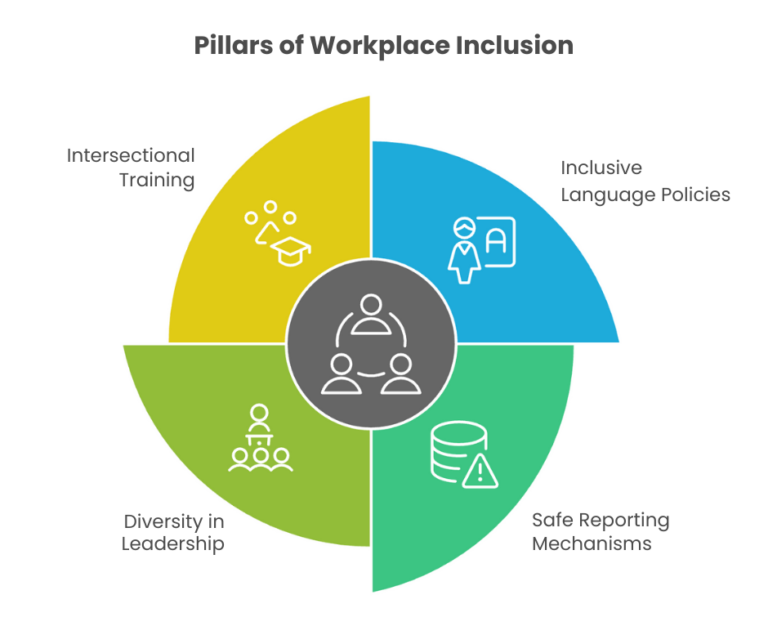
The Cost of Ignoring It
When the organizations do not take the effort to create safe and gender-neutral places, the bad effects happen not only immediately and nearby but also can be spread farther and wider in the organization world. With the constantly growing impact of social media, reputational damage can be done in a blink of an eye.
There was a famous case within one of India’s leading IT companies, when lack of the required actions brought the company bad reputation and questions about its ethical practices and leadership. Nor the situation was gender-related, yet it made it clear that if staff make their opinion unheard, they will soon be in a position where their voice cannot be ignored.
Reimagining the Future Workplace
Aisha’s story can be imagined with a different perspective yet another time. On this occasion, rather than letting a colleague’s careless comment go unnoticed, the team leader intervenes declaring, ‘We don’t use stereotypes here.’ The non-binary coworker gets their pronouns acknowledged and not because of force, but the company hosts an awareness workshop providing the required training for all. This is no longer just about compliance, this is about the shift in the culture.
That is the type of place where Gen Z is more than welcomed but can actually prosper, being a part of the huge and complex tapestry of diversity and inclusion not only a small piece.
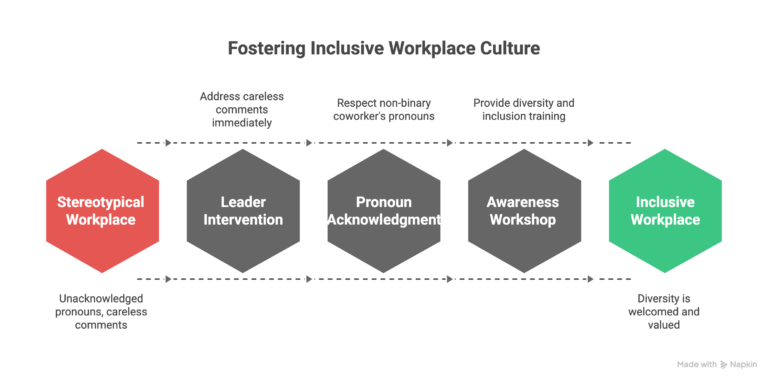
Safety Is the New Success Metric
The future of the workplace is not about beanbags or hybrid policies. Rather, it is about the safe harbor of psychological safety where every individual is in a state of respect, protection, and freedom to be.
The foundation for the POSH Act has been laid. And now, it is our, the employers’, the leaders’, and the co-workers’ responsibility to support its cause, so to speak, and include all gender identities, all voices, which means the enforcement of the POSH Act must be gradual and progressive in nature to accommodate every individual.
The simple truth is that for Gen Z, the lack of safety makes the whole endeavor not worth it at all.
#NoMeansNo
